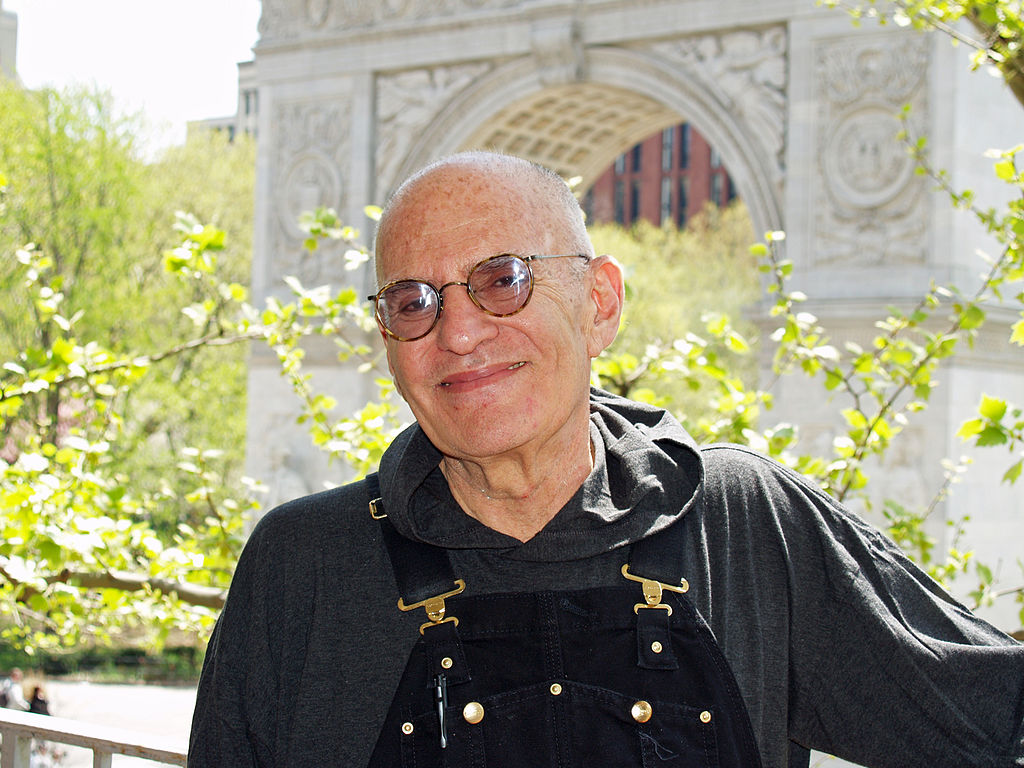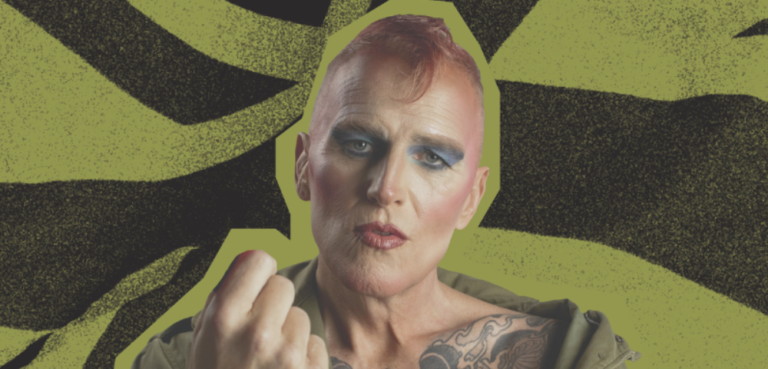
Larry Kramer, Author And AIDS Activist, Dies At 84

American author, playwright, outspoken AIDS activist, long-term survivor of HIV and queer icon Larry Kramer died on Wednesday at his home in Manhattan, New York at the age of 84. David Webster, Kramer’s husband, told The New York Times that the cause of death was pneumonia.
Kramer, an Oscar nominated screenwriter is best known for his book Faggots, a satirical novel about the gay community in New York in the pre-HIV/AIDS era, and The Normal Heart, a play about the AIDS crisis. He founded the world’s first AIDS service organisation – the Gay Men’s Heath Crisis and later the AIDS Coalition to Unleash Power (ACT UP).
Kramer inspired a generation of LGBTQI activists in the US and across the world, including in Australia.
“Larry Kramer was a defiant activist for gay rights in the US and a trailblazer in galvanising communities on the HIV/AIDS response. His fearless efforts inspired global movements to bring greater attention to HIV/AIDS, including here in Australia. ACON pays tribute to Kramer, whose courage, passion and tenacity helped light the spark of AIDS activism, which continues to burn around the world to this day,” said ACON CEO Nicolas Parkhill.
Melbourne’s ACT UP founded in 1990 was one of the worldwide networks of ACT UP groups inspired by Kramer’s activism. “We’ve lost a giant in the community-driven response to HIV and AIDS. Larry Kramer founded New York’s Gay Men’s Health Crisis and ACT UP – the latter of which led to a global network of ACT UP groups, with Melbourne’s ACT UP being established by our own namesake – Keith Harbour. Without people like Larry Kramer we wouldn’t have had the early wins that we had in the epidemic. We continue to benefit from his legacy now and into the future,” said Simon Ruth, CEO of Thorne Harbour.
Darryl O’Donnell, CEO of the Australian Federation of AIDS Organisation, was a young activist in Brisbane in the early 1990s when he joined ACT UP.
“Joining ACT-UP was, for me, an expression of outrage at what was happening for us as gay men. So many people were dying, often young men in their 30s and 40s. So many were sick. It was an expression of grief. We demanded treatment access and justice for all,” said O’Donnell.
O’Donnell recalled some of the fiery ACT UP protests in Melbourne – in July 1991, activists turned Melbourne’s Floral Clock into a cemetery, pulling out the flowers and replacing them with white crosses, followed by a mass “die-in” under the Flinders Street station clocks.
“ACT UP demanded immediate access to life-saving treatment when so many were dying and, ultimately, we got it. D-Day was June 6, 1991. ‘D’ was for deaths, drugs, delays and deadlines. The image of ACT UP members – the late Bill Hathaway among them – standing in a row outside Australia’s Parliament House with red flares lit in distress is one of the defining images of our community’s history. Inside, an activist abseiled to the floor of the chamber as the Health Minister spoke,” said O’Donnell.
Australia allowed drug access but that did not stop more than 1,000 dying in a year in 1994. “AIDS activists’ highly visible protests forced mainstream Australia to confront the stark trauma our communities faced. There was no easy or palatable way of making these points. Larry gave us the courage to communicate bluntly and honestly about this unfolding reality,” said O’Donnel.
Across the world activists, celebrities, political leaders and activists remembered Kramer’s legacy. Perhaps the most poignant tribute, in these times when the world is confronting another epidemic, came from Dr Anthony Fauci, the leading infectious disease official and the “scientific face of US’s COVID-19 response.”
Dr Fauci, who was then the face of the federal response to the HIV/AIDS epidemic, was called a “murderer” by Kramer. Over the years, they became good friends.
“Larry Kramer was a most unusual figure in a very positive sense. He was a firebrand, he had extraordinary courage to speak out and challenge the system that was in place at the time of the early years of HIV/AIDS. As a government official who was trying to do a job to address this, he saw me as the face of the federal government. He attacked me. He called me a murderer. He called me an incompetent idiot publicly. But then as I got to listen to what he had to say, (we) realised that he was making some very important points that we in the establishment needed to listen to,” Dr Fauci told PBS in an interview.
“We became, gradually, friends, and then we became very good friends. And, then we became colleagues in the struggle. I loved the guy and I think he loved me back. And it was a very interesting journey, we went through together. From the very beginning when there was no hope and we were adversaries, to the point where we had extraordinarily effective drugs, and were able to save the lives of so many people that we became sort of old guys together looking back in history and realising what an amazing journey we’ve been through together.”
Dr Fauci credited Kramer for changing the way public health officials thought of the response to a health crisis and epidemics. “By his extraordinary iconoclastic and theatrical ways of doing things he changed the relationship between the afflicted community with a given disease, and the scientific and regulatory community that has such a great impact on them. He said you can’t be separate, you’ve got to keep us in the tent, we’ve got to be in there with you.”
One of the first celebrities to post his tribute was another queer icon Elton John. “Larry Kramer’s passing is the saddest news. We have lost a giant of a man who stood up for gay rights like a warrior. His anger was needed at a time when gay men’s deaths to AIDS were being ignored by the American government. A tragedy that made the Gay Men’s Health Crisis and ACT UP movements so vital. He never stopped shouting about the injustices against us. His voice was the loudest and the most effective,” said Elton John, adding that Kramer’s legacy must be maintained.
Apple CEO Tim Cook tweeted: “Larry Kramer was an American original who got loud, acted up, and saved many LGBTQI lives. His unrelenting efforts won’t be forgotten and should be held up as an example of a timeless truth: “the one thing that doesn’t abide by majority rule is a person’s conscience.”
Watch Larry Kramer’s historic plague speech here.
Learn more about Larry Kramer through his works and writings here.









